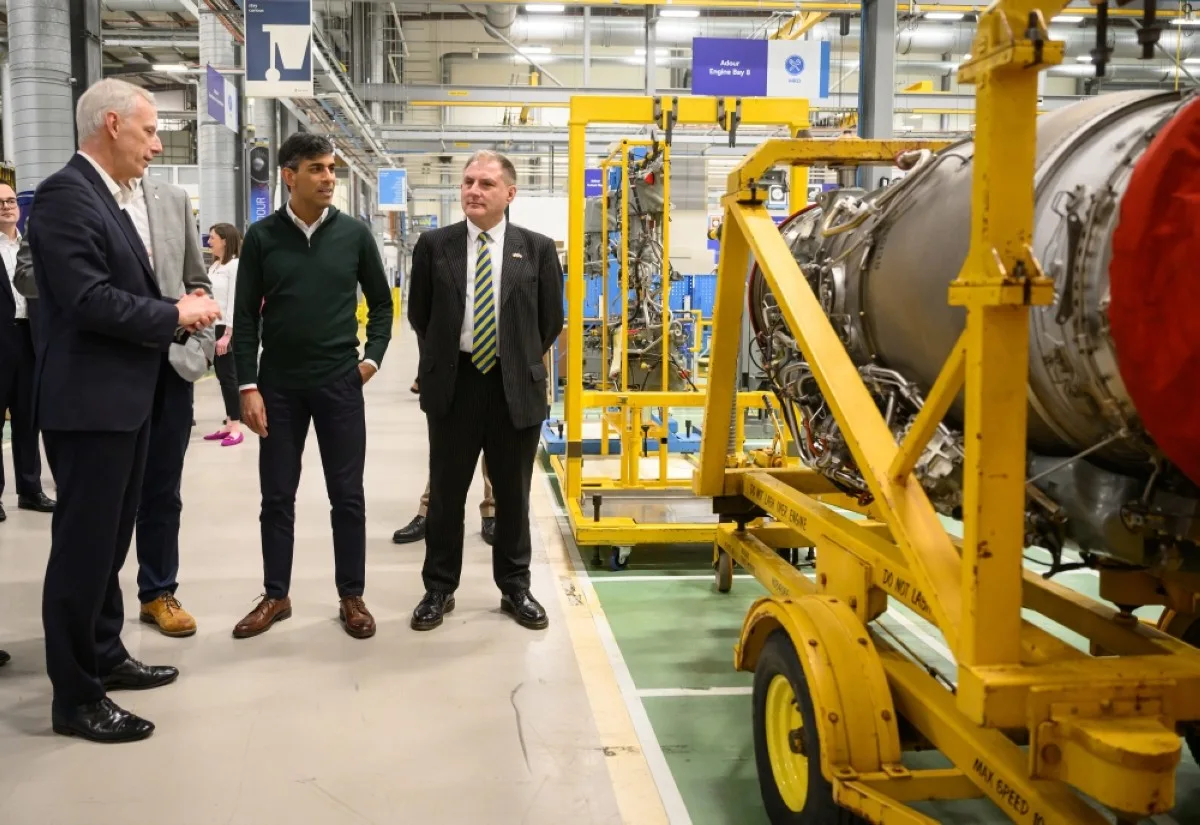LONDON: Britain’s annual inflation rate fell more than expected in February, official data showed Wednesday, fuelling speculation that the Bank of England will start cutting interest rates in the coming months. The Office for National Statistics said inflation reached 3.4 percent last month - the lowest level since September 2021 - as growth in food prices eased further. The rate came down from 4.0 percent in January, while the Bank of England and other economists had forecast consumer prices to rise by 3.5 percent in February. The drop may give a boost to embattled Prime Minister Rishi Sunak and his Conservative party as they face the prospect of losing a general election later this year amid discontent over the country’s cost-of-living crisis.
But with inflation remaining well above the BoE’s two-percent target, the central bank is widely expected to keep its main interest rate on hold in an announcement due Thursday.
This follows a regular monetary policy meeting and also an interest-rate announcement Wednesday from the US Federal Reserve. Economists are forecasting the Fed and European Central Bank will begin cutting rates from June — having massively hiked borrowing costs to tackle soaring prices.
For the BoE, the outlook is less clear according to economists, even if rate cuts could give a lift to Britain’s recession-hit economy. “The Bank of England has already said it’s not going to cut interest rates in a hurry,” Sarah Coles, head of personal finance at Hargreaves Lansdown, said following Wednesday’s data. “It’s going to wait for lower inflation to bed in. It means there’s a decent chance we won’t see cuts until August.”
Other analysts said a cut was likely to occur in June. There is no BoE monetary policy meeting in July. “Right now, the market is split between the first-rate cut coming at the June or August meeting,” noted Kathleen Brooks, analyst at XTB trading group. “Overall, there was something in this (inflation) report for both the hawks and the doves as we lead up to Thursday’s BoE meeting.”
On a monthly basis, the Consumer Prices Index rose 0.6 percent last month compared with a rise of 1.1 percent in February 2023. The pound was down against the dollar and steady versus the euro following the latest data, while London’s FTSE 100 stocks index fell slightly. The chief economist at the statistics office, Grant Fitzner, said “almost unchanged” food prices were the “main driver” of the fall to UK inflation last month. Offsetting this were rises to petrol prices and rents, he added.
Finance minister Jeremy Hunt welcomed the headline drop. “Inflation has not just fallen decisively but is forecast to hit the two-percent target within months,” he said in a statement.
“This sets the scene for better economic conditions which could allow further progress on our ambition to boost growth.” With his Conservative party forecast to lose power to main opposition Labour in the election, Hunt cautioned against “increasing borrowing or cutting funding for public services” to fund recent tax cuts. Hunt earlier this month announced a tax cut for millions of workers as the government tries to win around voters.
Sunak followed this up on Monday by launching measures to help small businesses navigate the weak economy. Companies and individuals have been hit by soaring interest rates as retail banks pass on hikes by the Bank of England.
At 5.25 percent, the BoE’s main rate is the highest level for 16 years, hurting borrowers but handing a boost to savers. The BoE hiked its key interest rate 14 times between late 2021 and second half of last year. Global inflationary pressures started to build after Covid lockdowns were lifted. Energy and food prices went on to skyrocket following the invasion of key grains producer Ukraine by major oil and gas provider Russia in early 2022. — AFP











